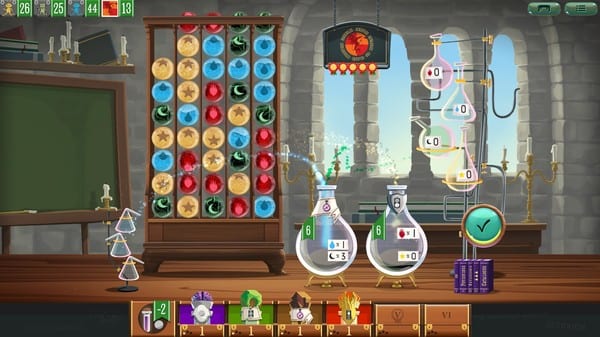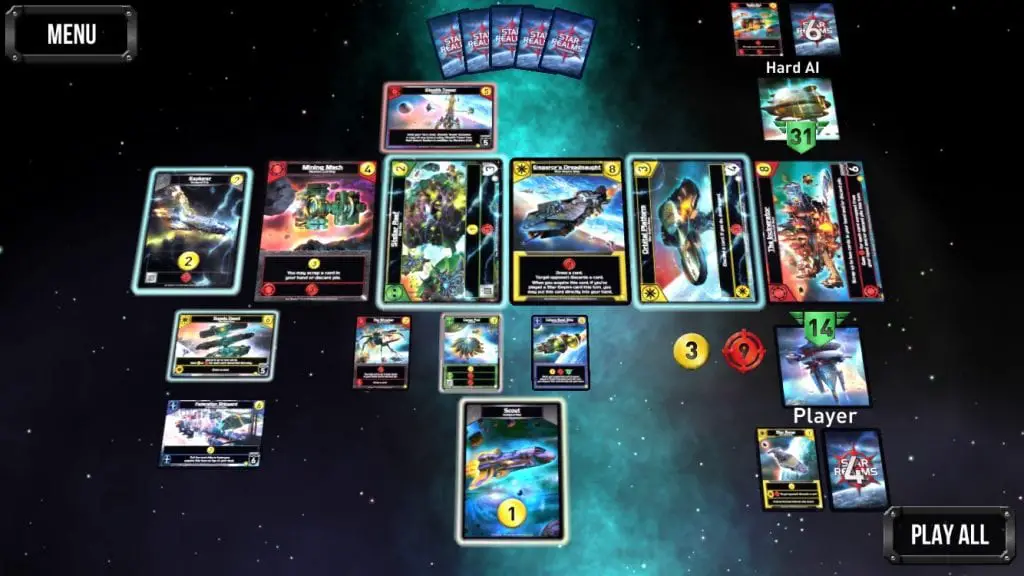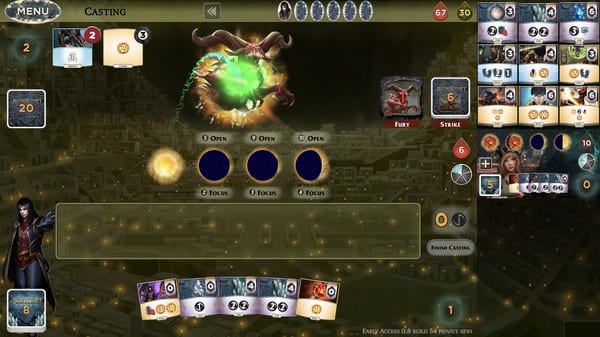Board games are being transformed right before our very eyes. In the digital age, it can only be expected that board games would begin to start popping up in the app stores. In light of that, I want to talk a little bit about that trend, as well as how these games differ once they are turned into apps. It’s hard to recreate the feelings of immersion that a physical game gives to the players. I have seen it implemented successfully with card games, but less so with more complex board games that contain multiple moving parts and physical components.
I’ve done contract work with many companies that have extremely successful board games apps, and I’ve done technical support for apps as well. The Star Realms app, in my only slightly biased opinion, is extremely well done, largely due to an awesome dedicated team of hard-working people and also the fact that it is a cards only game. One of my favorite apps, Potion Explosion, has a lot of physical moving marbles that make it both wonderful to play and easier to see. I only play it on my iPad at this point. One game I am most excited to try out is Cottage Garden because of how easy it looks visually as a cross-platform game.

I don’t like to speak negatively about any game, but I will talk about games I have struggled with. For instance, Kingdom Builder doesn’t have an undo button, which makes it a challenge for players who, like me, have occasionally numb and clumsy fingers. Also, If you have an app, please make it easier to read over a card without accidentally playing it. Magic The Gathering: Arena makes it very easy to loom over cards before you play them.
The challenge facing a lot of app developers is this: how to take a well-loved physical game and translate that over to something you can only click to take an action instead of moving your own parts. The “User Interface,” or UI, is the way a user interacts with software, and it is extremely important. It’s how the publisher has the most direct link to the consumer. If you design a game and want to publish an app, then you really need to have it tested in beta for a year or two to get player feedback.

The best resource a developer has is honest feedback. In my opinion, if you dislike an app due to a tutorial please right the customer support and stick with the app, maybe check back on it every few months to see if new content has changed anything to make your experience more enjoyable. The team developing the app is trying to do a challenging balancing act between what will make the most fun and also most user friendly. Joining online communities on social media or on discords channels is a great way to keep in contact and have your voice heard. A lot of companies feel pressure to push out games as fast as they can as apps, but testing and getting feedback is absolutely the most important thing.
Recently, Handelabra Games contacted me via Twitter, and they were nice enough to provide me with codes for a few of their games, many of which are built and maintained by other board game companies. Over the next two weeks, I’ll be playing their app versions of popular board games and seeing what I think of them. I will be playing One Deck Dungeon, Sentinels of the Multiverse, and Aeon’s End. I’m really excited to see the (hopefully) noticeable differences and smooth transitions from physical to digital. I have played the physical versions of all of them. The only one that isn’t exactly my kind of game is Aeon’s End, a really solid deckbuilder that’s sadly hampered by slow play at the table which the app can hopefully solve. I will be playing on both iOS and Steam to see how the games vary between my phone, tablet and PC. I look forward to reporting back!

I believe we should try to have a conversation with consumers about what they want and what can be implemented in the app design sphere, instead of creating content that is hard to understand and frustrating for consumers. Honesty is the best policy, and if a publisher has a game that is to that it would be complex to translate then be upfront with the consumers and say, we don’t know right now but will update the fans via social media (This is also a free marketing tip to get the consumer to follow you on social media).
Images via Handelabra Games, White Wizard Games, and Asmodee Digital

